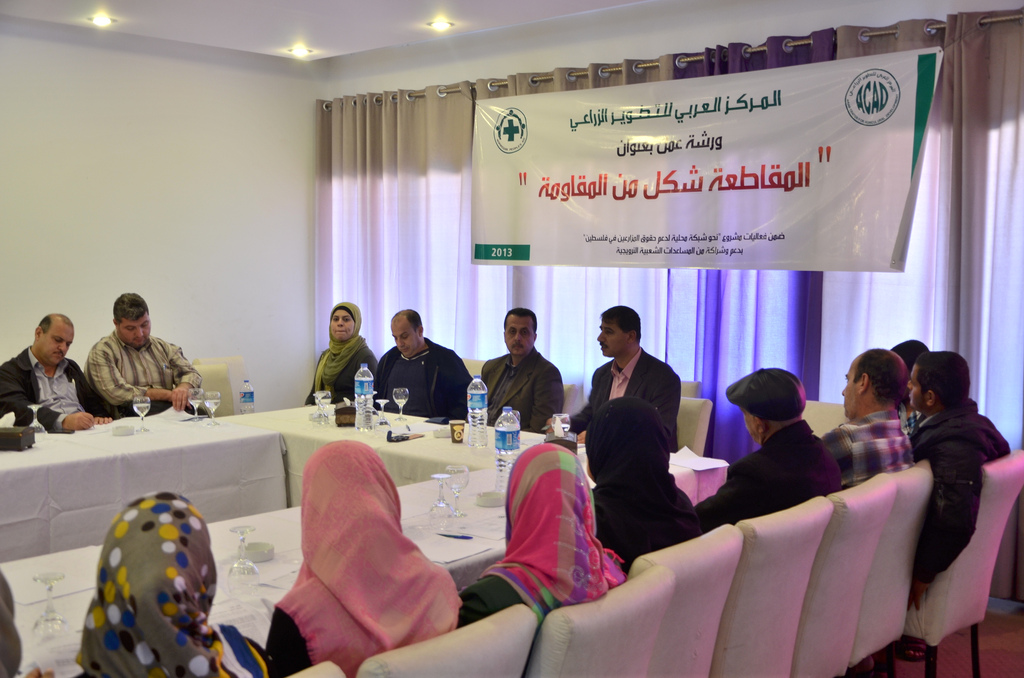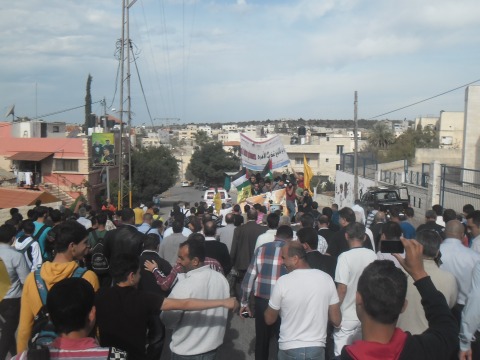Category: Reports
-
BDS workshop draws dozens of farmers and agricultural officials in Gaza
28th November 2013 | International Solidarity Movement, Maria del Mar Fernandez and Mohammed Abedullah | Gaza, Occupied Palestine On Monday, 25th November 2013, a conference on the Boycott, Divestment and Sanctions (BDS) movement against Israeli apartheid, colonization and occupation was held in Gaza City by the Arab Center for Agricultural Development (ACAD) and Norwegian People’s Aid…
-
An unrelenting assault on the village of Deir Istiya’s farmland
28th November 2013 | International Solidarity Movement, Nablus Team | Deir Istiya, Occupied Palestine The village of Deir Istiya has encountered severe disruption to its agriculture and water supply since 1990 from the Israeli authorities and nearby illegal settlements. This has culminated in the Israeli army’s planned action to uproot nearly 2500 olive trees in the…
-
Demonstration against Israeli forces as invasions and arrests increase in Azzoun
28th November 2013 | International Solidarity Movement, Nablus Team | Azzoun, Occupied Palestine Yesterday afternoon in Azzoun village, there was a demonstration attended by more than 250 people. This protest was against the Israeli forces’ continuing night invasions, arrests, and their treatment of Palestinian prisoners. The demonstration began in the center of Azzoun at noon, hundreds of…



